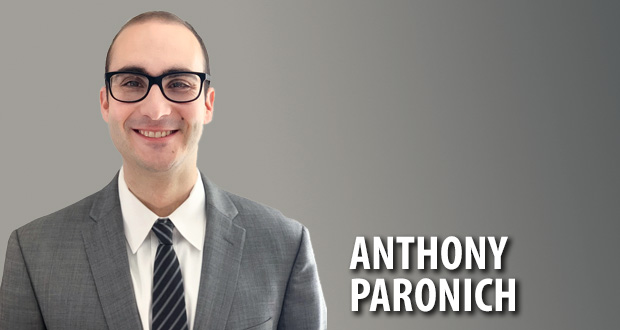
Plaintiffs’ lawyer applauds decision
Attorneys say a recent U.S. District Court decision in Massachusetts broadly interpreting the definition of “automatic telephone dialing system” under the federal Telephone Consumer Protection Act preserves the ability of consumers to seek redress against telemarketers that make unsolicited robocalls to their cellphones.
Under the TCPA, a telemarketer is prohibited from calling or texting cellphones using an automatic telephone dialing system without prior written consent of the phone’s owner. The law also allows the person being called to sue for $500 per violation.
The statute defines an automatic telephone dialing system, or ATDS, as equipment that can “store or produce telephone numbers to be called, using a random or sequential number generator, and … to dial such numbers.”
Some courts across the country have interpreted the definition to cover devices that can store lists of numbers and dial them automatically and devices that can generate numbers on their own to call. Other courts have adopted a narrower definition that includes only devices that can generate random or sequential numbers.
In the instant matter, the plaintiffs brought a class action against a solar power vendor and the telemarketing firm it hired to pitch its products, alleging that they violated the TCPA by robocalling them using a system that stored and dialed a list of numbers but did not randomly or sequentially generate the numbers itself.
The defendants argued that the narrower definition was the correct one and thus the plaintiffs had no claim under the TCPA.
But Judge F. Dennis Saylor IV disagreed.
“[T]he TCPA is an unusually confusing statute. But considering the statute as it is written, the Court concludes that the phrase ‘using a random or sequential number generator’ modifies only the verb ‘produce’ and not the verb ‘store,’” Saylor wrote in denying the defendants’ motion to dismiss. “Therefore, to qualify as an ATDS under the TCPA, a device need only have the capacity to do one of the following: either (1) ‘store … telephone numbers to be called’ and ‘dial such numbers,’ or (2) ‘produce telephone numbers to be called, using a random or sequential number generator’ and ‘dial such numbers.’”
 “If this interpretation becomes the law of the land, as we’re hoping it will, then consumers will continue to be protected from unwanted robocalls. If it’s not, then none of the automated dialers in use these days will be covered.”
“If this interpretation becomes the law of the land, as we’re hoping it will, then consumers will continue to be protected from unwanted robocalls. If it’s not, then none of the automated dialers in use these days will be covered.”
— Margot Saunders, National Consumer Law Center
Plaintiffs’ counsel Anthony I. Paronich of Hingham lauded the ruling for giving consumers an opportunity to seek redress against the type of automated telemarketing conduct at issue in the case.
Margot Saunders of the National Consumer Law Center in Washington, D.C., agreed.
“If this interpretation becomes the law of the land, as we’re hoping it will, then consumers will continue to be protected from unwanted robocalls,” said Saunders, who testified about telemarketing and the TCPA before a Senate committee earlier this month. “If it’s not, then none of the automated dialers in use these days will be covered.”
The 17-page decision is Gonzalez, et al. v. HOSOPO Corporation, et al.
Alleged violation
Defendant HOSOPO Corp. hired defendant Flowmedia to make telemarketing calls on its behalf.
In fall 2017, plaintiff Jeremiah Davila-Lynch received on his cellphone at least five calls from a company he alleges to be “the same” as Horizon Solar.
He claimed the calls included pre-recorded messages and alleged that he heard a “click-and-pause” sound upon answering, which indicated to him that they were made using an automatic telephone dialing system.
A month later, plaintiff William Gonzalez allegedly received a number of calls on his cellphone that included scripted pitches on behalf of Horizon Solar that he claimed were made by an automatic telephone dialing system. He claimed to receive at least eight more calls directly from Horizon Solar that spring.
On Jan. 15, 2018, Davila-Lynch filed a putative class action against Horizon in U.S. District Court on behalf of himself and others similarly situated alleging violations of the TCPA. He later added Flowmedia. Gonzalez joined the suit in August.
The defendants moved to dismiss for failure to state a claim, though proceedings against Flowmedia were eventually stayed pending bankruptcy. According to the defendants, the type of device allegedly used to place the calls could not generate random or sequential numbers to be dialed on its own and thus was not an automatic telephone dialing system within the meaning of the statute.
Broader definition
Saylor rejected the defendants’ argument that a telemarketer’s dialing system needs the ability to generate random or sequential numbers to be considered an automatic telephone dialing system.
In doing so, he rejected the narrow definition espoused in the 3rd U.S. Circuit Court of Appeals’ 2018 Dominguez v. Yahoo, Inc. decision in favor of the broader definition adopted by the 9th Circuit last year in Marks v. Crunch San Diego, L.L.C. In the latter case, the 9th Circuit found that a system that simply stores and automatically dials numbers is an automatic telephone dialing system as well.
Under the narrower reading, the phrase “using a random or sequential number generator” applied to both the words “store” and “produce.”
That makes no sense, Saylor said, because though it is easy to imagine an automatic telephone dialing system that produces numbers using a number generator, “it is unclear how an ATDS — or indeed anything — could ‘store’ numbers ‘using’ a number generator.”
Accordingly, Saylor concluded, “to the extent Horizon Solar seeks dismissal on the basis that the devices at issue do not qualify as ATDSs under the TCPA, the motion will be denied.”
Significant decision
While conceding that, as a District Court ruling, Saylor’s decision does not create binding precedent, Paronich emphasized that it is important to have a Massachusetts court speak on the issue.
He also said the decision sends a positive signal about the viability of class actions under the TCPA as a way for consumers to address unwanted robocalls. He noted that it costs several hundred dollars for an individual to file a claim in federal court.
“How viable is it for an individual to bring a $500 claim without a fee-shifting provision?” Paronich said. “The TCPA has no fee-shifting provision, which is another reason why the class action device is so particularly important to these claims.”
“The TCPA should be updated to address contemporary technology and business practices, and federal class action practice should be reformed to eliminate, or at least reduce, the incidence of such costly litigation in which the only real party in interest is class counsel.”
— John J. O’Connor, Boston
However, John J. O’Connor of Boston, who represented defendant Flowmedia, said the TCPA is “far from clear,” as are the Federal Communications Commission rulings and case law interpreting it.
“Reasonable minds can differ over them, as the HOSOPO suit illustrates,” he said.
O’Connor also emphasized that the TCPA is a strict liability statute, making it virtually impossible for businesses to defend against suits like HOSOPO. As a result, he said, legitimate businesses that need to contact consumers for a living face “ruinous liability” while class action attorneys collect millions of dollars in fees on behalf of consumers who have suffered no actual damages and are simply seeking statutory damages for alleged technical violations.
“In my view, the TCPA should be updated to address contemporary technology and business practices, and federal class action practice should be reformed to eliminate, or at least reduce, the incidence of such costly litigation in which the only real party in interest is class counsel,” O’Connor said.
Matthew P. McCue of Natick, who represents plaintiffs in TCPA cases across the country, countered that “telemarketing is awful now” and would be “astronomically worse” if the industry’s interpretation of an automatic telephone dialing system was accepted by the court.
“The judge in this case closely looks at all the case law and applies a common-sense textual interpretation and recognizes the remedial purpose of the telemarketing statute, agreeing with the consumer that the true definition should be broader,” McCue said. “The whole purpose of the TCPA was to strictly regulate mass telemarketing using computers. If you’re going to interpret [ATDS] narrowly, it gives free reign.”
Boston attorney John J. Roddy, who also represents plaintiffs in consumer class actions, said Saylor “threaded the needle” between modes of statutory construction that might have resulted in a narrower interpretation of an ATDS.
“As the conjunctive analysis of these cases makes the word ‘store’ superfluous, [Saylor’s] conclusion that the ‘store’ and ‘produce’ elements are disjunctive complies with statutory constructive principles and furthers the TCPA’s purpose of eliminating the uniformly despised robocalls that we all seem to receive,” Roddy said.
 New England Biz Law Update
New England Biz Law Update
